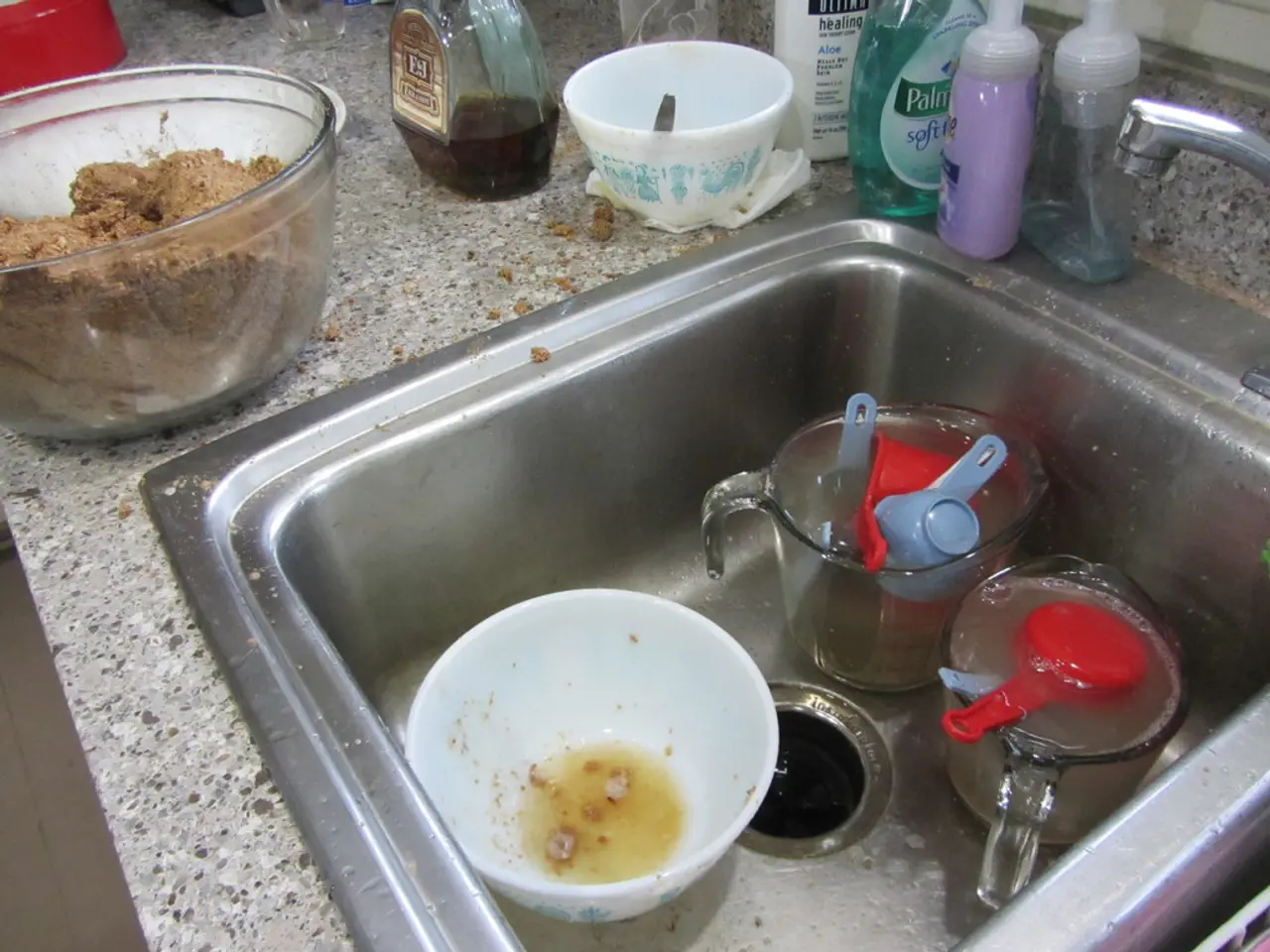Kitchen utensil discovered to significantly contribute to the spread of harmful bacteria in homes, contrary to popular belief, not a chopping board.
In the heart of summer, when outdoor cooking becomes a popular pastime, maintaining cleanliness in the kitchen takes on an added importance. However, it's not just daily cleaning habits and deep cleaning that matter; the risk of bacterial spread can increase during these warmer months. One often overlooked area in the home that can harbour harmful bacteria is the humble tea towel.
Food hygiene expert, Mark McShane, warns that tea towels can spread E. coli, Salmonella, and other bacteria in the kitchen. According to McShane, food poisoning can also come from clean-looking cutlery dried with the wrong towel. Bacteria can survive on damp tea towels for up to 48 hours, especially in warm kitchens, making them a breeding ground for germs.
To prevent the spread of these harmful bacteria, it's essential to adopt proper practices for cleaning and maintaining tea towels. Regular high-temperature washing is key. Tea towels should be washed frequently in hot water to kill bacteria. While specific temperatures vary, washing in water at least 60°C (140°F) is generally effective in reducing bacteria on fabrics.
Avoiding prolonged dampness is also crucial. Bacteria thrive in moist environments, so tea towels should be allowed to dry completely between uses and not left damp or crumpled, which encourages bacterial growth.
When tea towels are used to wipe raw meat juices, spills, or heavy food residue, they should be washed immediately or replaced to avoid cross-contamination. Washing tea towels separately or with other kitchen linens helps prevent bacterial spread to other household fabrics.
Using appropriate detergents and disinfectants can assist in bacterial removal. Mild detergents with bleach or disinfectants suitable for laundry can help ensure a thorough clean.
To reduce cross-contamination, it's advisable to dedicate specific towels for certain tasks. For instance, one for drying hands, another for dishes. A multi-purpose cleaner from Method can cut through germs on kitchen countertops, providing an additional layer of protection.
Research shows that tea towels are bacterial hotspots, readily accumulating germs including E. coli and Salmonella if not properly cleaned and dried. The moist, porous fabric provides an ideal breeding ground for bacteria, making regular high-temperature washing and thorough drying crucial to kitchen hygiene.
In summary, frequent high-temperature washing, complete drying, task-specific use, and immediate laundering after contamination are key to maintaining tea towels and preventing harmful bacterial spread in the kitchen. Using a washing machine cleanser ensures a thorough clean for tea towels, while an eco-friendly laundry detergent is ideal for sensitive skin and an impressive stain remover.
A simple switch in habits can prevent weeks of illness, as explained by Mark McShane. He also suggests replacing tea towels more frequently during hot weather or heavy cooking days to ensure the highest level of cleanliness and safety in the kitchen.
- Maintaining cleanliness in the kitchen, especially during summer when outdoor cooking is popular, is crucial due to the increased risk of bacterial spread.
- Tea towels can harbor harmful bacteria like E. coli, Salmonella, and other bacteria, potentially causing food poisoning even from clean-looking cutlery.
- To prevent bacterial spread, tea towels should be washed frequently in hot water (at least 60°C or 140°F) and dried completely to avoid prolonged dampness.
- A multi-purpose cleaner from Method can help reduce germs on kitchen countertops, providing an additional layer of protection against bacterial growth.
- Regular high-temperature washing, complete drying, task-specific use, and immediate laundering are essential practices for maintaining tea towels and ensuring kitchen hygiene.




